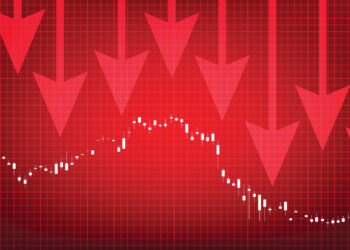Foreign portfolio investors have poured N1.03 trillion into Nigerian equities in the first nine months of 2025, according to the Nigerian Exchange’s investment report for September 2025.
The figure is more than two and a half times the N396.41 billion recorded for the whole of 2024 and nearly six times the N174.8 billion that came in during 2023.
On a year-on-year basis, inflows jumped from N310.99 billion by September 2024 to N1.03 trillion by September 2025, representing a 231% surge.
The rebound marks a striking turnaround in foreign appetite for Nigerian assets. Nairametrics observed that the liberalisation of the foreign exchange market and efforts to clear FX backlogs, among other reforms, have boosted investor confidence. The inflow figure also shows that reforms are beginning to tilt foreign participation back toward levels not seen in recent years.
Monthly flows swing wildly as investors test confidence
The monthly numbers reveal a story of volatility rather than steady growth. January saw inflows of N25.66 billion, down by about 2.29% from December 2024 (when it was N26.26 billion).
February slipped further to N18.05 billion, a fall of nearly 30%. In March, however, inflows exploded to N349.97 billion, a month-on-month leap of more than 1,800%, making it the largest inflow of the year so far.
That momentum quickly reversed in April, with inflows plunging to N26.64 billion, a 92% drop. May staged a rebound to N66.11 billion, up 148%, while June edged higher to N72.82 billion, a 10% increase. July retreated to N50.48 billion, down 31%, before August rose strongly to N95.14 billion, up 89%. September then delivered another surge, with inflows climbing to N325.46 billion, a 242% rise from August.
The concentration of flows in March and September is striking. Together they contributed N675.43 billion, which represents almost two-thirds of total foreign inflows so far this year.
Local investors remain dominant but foreign share is rising
Despite the milestone, domestic investors still account for the lion’s share of market activity. From January to September, domestic trades reached N6.70 trillion, making up 78.4% of total transactions. Foreign trades stood at N1.84 trillion, representing 21.6%.
In September, domestic trades rose 67.5% to N1.23 trillion from August levels, driven by a sharp rise in institutional activity. Institutional trades jumped 143% to N955.26 billion, while retail activity fell 19% to N278.57 billion. Foreign transactions also grew strongly in the same month, climbing 126% to N387.62 billion. Importantly, inflows accounted for more than 84% of that figure, showing that September was driven by new foreign entries rather than exits.
Foreign participation has already outpaced recent history. Total foreign transactions of N1.84 trillion so far in 2025 are more than double the N852.03 billion seen in all of 2024, a 116% increase.
Nairametrics also observed that foreign portfolio inflows surpassed outflows for the first time in recent years, breaking the long trend of net foreign withdrawals.
What you should know
The surge in inflows is a clear vote of confidence in Nigeria’s reform drive, yet the sustainability of these flows is still an open question. Outflows in the first nine months of 2025 reached N810.39 billion, showing that many investors remain cautious and willing to pull money out quickly.
September’s inflows alone were almost equal to the total inflows recorded in all of 2024. If current momentum holds, foreign inflows could exceed N1.3 trillion by the end of the year, making 2025 one of the strongest years on record.
The challenge for policymakers will be converting these short-term bets into longer-term commitments, deepening liquidity in the capital market, and shielding inflows from the swings of global risk sentiment.























